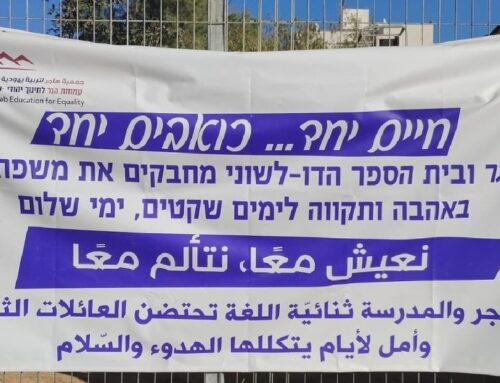I have just returned from a very intensive 12-day stay in Israel, most of it in the framework of Meretz USA’s annual seminar in Israel, the “Israel Symposium”. It will probably require another few weeks to sort out the many and diverse perspectives that I heard, and synthesize them into a full and organized report, but – with so many raw impressions fresh in my mind – I would like to use this column to share with you a set of initial thoughts.
First, the political context: I arrived in Israel less than a month after the elections that voted a clear right-wing majority into Israel’s Knesset, and that dealt a severe body blow to both the Labor and Meretz parties. And it was less than two months since the end of the Israel-Hamas war, a military action that was supported by 96%(!) of Jewish Israelis. An even more telling statistic: 65% of Israel’s Jews continue to believe that the government ended the war too soon, and that it should have “finished the job” of eradicating the Hamas in Gaza, regardless of the political and human costs.
Understandably, I encountered an Israeli left that was still in a state of shock and disarray. Nonetheless, amid the pessimism, and perhaps because of it, some on the Left have already begun to address how the peace and human rights camp can redefine and reorganize itself to take up the challenges of the 21st century.
The Israeli-Palestinian peace process is a key area in which new thinking is already underway. On the Symposium’s opening night, Prof. Naomi Chazan argued that the bilateral negotiating process launched at Oslo in 1993 and that continued through Annapolis in 2007 is no longer relevant. The election of a right-wing Knesset was the last nail in the coffin.
Therefore, she (and many others) said, the hope for peace must be buoyed by much more emphatic international and, primarily, American engagement. Phrases such as “international trusteeship” as a way-station to Palestinian statehood have entered diplomatic parlance, as has “the use of American leverage”.
Prof. Chazan was hopeful that President Obama was equal to this task. Others, like Haaretz journalist Akiva Eldar, were more skeptical.
READ MORE…!






Leave A Comment